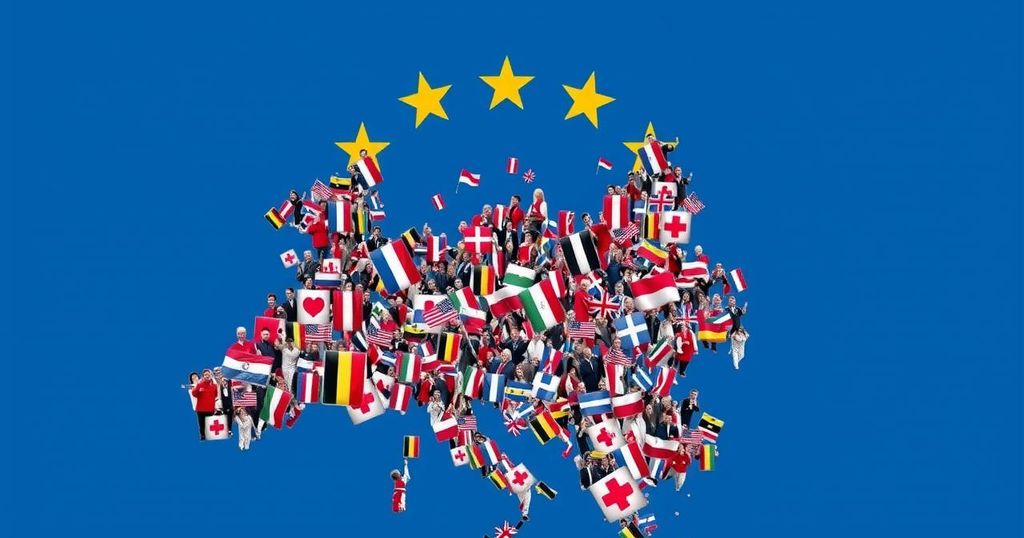Georgia Elections: Allegations of Russian Meddling and Calls for Investigation by EU and US

The Kremlin has denied any interference in Georgia’s recent parliamentary elections, which were marred by allegations of irregularities and accusations from President Zourabichvili of Russian meddling. The EU and US have urged an investigation into the reported electoral violations, highlighting concerns about democratic processes in the region amidst increasing tensions between pro-Russian and pro-EU factions.
Dmitry Peskov, spokesperson for the Kremlin, categorically refuted allegations of Russian intervention in the recent Georgian parliamentary elections, which resulted in the ruling pro-Russian party, Georgian Dream, securing nearly 54% of the votes. In stark contrast, Georgian President Salome Zourabichvili has accused Russia of influencing the electoral process, claiming it constitutes part of a broader “Russian special operation.” Upon addressing Zourabichvili’s assertions, Peskov stated, “We strongly reject these accusations. There was no intervention. These accusations are completely unsubstantiated.” He further alleged that attempts to destabilize the situation in Georgia stemmed from European nations rather than Russia itself, asserting, “There are attempts to interfere — but not from Russia’s side.” In parallel, the United States and the European Union have urged a comprehensive investigation into reported electoral violations. Following the counting of almost all precincts, the results marked a setback for pro-Western advocates in Georgia, who regarded the election as a pivotal decision between the ruling party’s increasing ties with Russia and the opposition’s aspirations for expedited European integration. Observers from the Organisation for Security and Co-operation in Europe (OSCE) reported incidents of vote-buying, voter intimidation, and ballot-stuffing that could potentially have influenced the electoral outcomes. Sebastian Fischer, spokesperson for the German Foreign Office, remarked, “There were significant irregularities with regard to voter manipulation and intimidation and problems with maintaining the secrecy of the ballot.” He emphasized, “We condemn these violations of international norms and join calls by international local observers for a full investigation into the reported irregularities.” US Secretary of State Antony Blinken acknowledged that, while the election was “generally well administered,” it was still marred by reports of irregularities and sporadic violence, noting that international observers did not deem the election result to be “free and fair.” He called for an investigation into the matter. European Council President Charles Michel urged Georgian authorities to promptly and transparent investigate any alleged electoral irregularities, insisting that such discrepancies “must be seriously clarified and addressed.” Hungarian Prime Minister Victor Orban was the first foreign leader to extend his congratulations to Georgian Dream and is currently visiting Tbilisi to meet with the Georgian Prime Minister. However, EU foreign policy chief Josep Borrell clarified that Orban’s position as the EU’s rotating president does not represent the bloc’s stance, asserting, “Whatever Mr. Orban says in his visit to Georgia, he does not represent the European Union.” In a show of regional solidarity, Moldovan President Maia Sandu, whose own country faced similar accusations of electoral interference by Russia, indicated that she had discussed the situation with President Zourabichvili, proclaiming, “Moldova stands with all Georgians fighting for freedom, democracy and a European future.”
The Georgian parliamentary elections have drawn significant attention due to accusations of foreign interference, particularly from Russia, which has historically maintained a sphere of influence over Georgia. The ruling party, Georgian Dream, has been perceived as pro-Russian, while opposition factions advocate for stronger ties with the European Union. This geopolitical tug-of-war reflects broader regional tensions, as both the EU and US have been closely monitoring the political climate in Georgia, particularly following previous instances of alleged election meddling. The accusations from Georgian leaders and the subsequent calls for investigation highlight the ongoing struggle for democratic integrity in the region, alongside concerns about external influences.
In summary, the recent elections in Georgia have sparked controversy over allegations of Russian interference, which Moscow has staunchly denied. The EU and US have called for investigations into irregularities reported by international observers, emphasizing the need for electoral integrity. As Georgia navigates its geopolitical position between Russia and the West, the outcome of these events may significantly impact its future political trajectory and aspirations for European integration.
Original Source: www.dw.com








